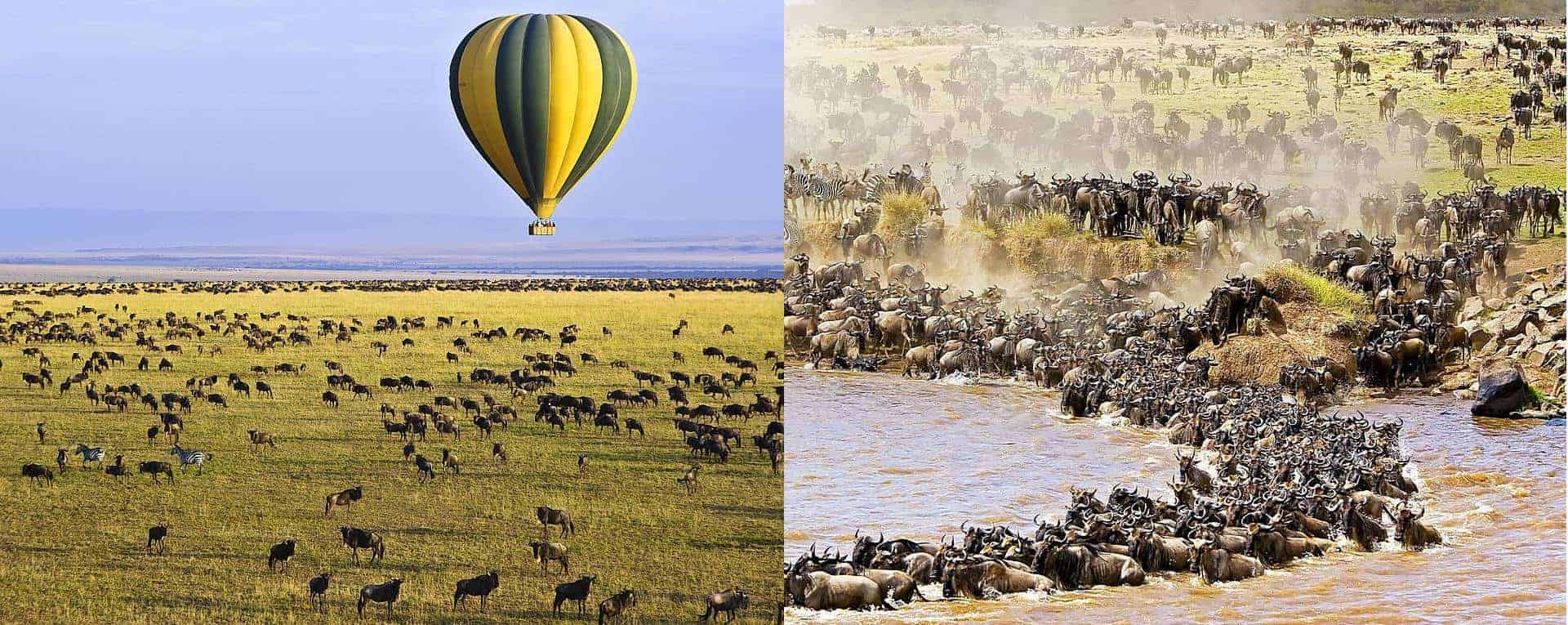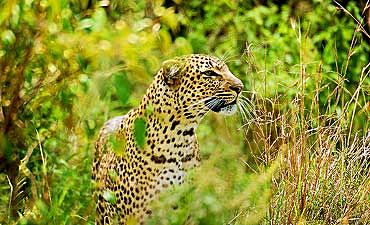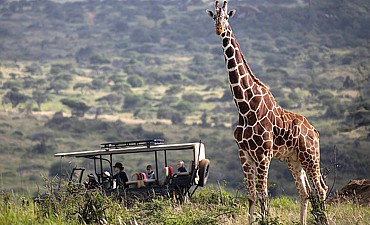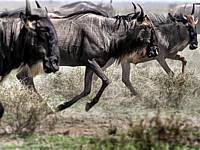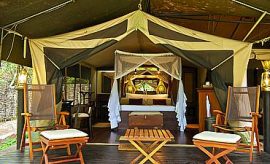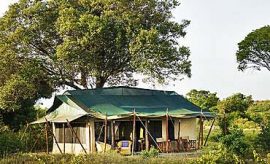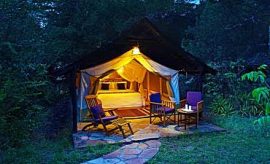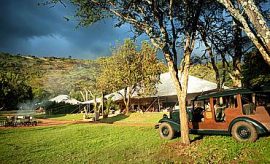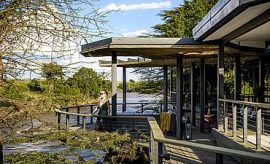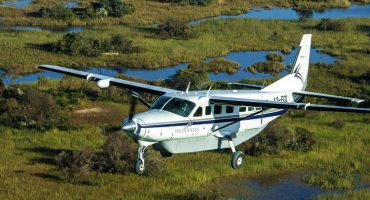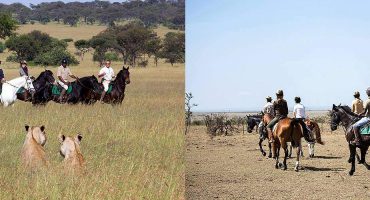MASAI MARA MIGRATION GUIDE & BEST TIME TO SEE IT IN 2026-2027 (2025)
2026 And Upcoming 2027 Tracker Updates (2025 Ended) On The Great Wildebeest Migration Herd In Masai Mara
The Great Wildebeest Migration in the plains of East Africa is one of the world’s most thrilling, intriguing and spectacular displays of wildlife behavior. As such, our travelers place great timing importance on having the best front row seats to see the event. By sharing our personal knowledge, local experience and expertise of the Great Migration in Masai Mara National Reserve, AfricanMecca Safaris helps you have a superlative safari trip in Kenya’s pristine wilderness outback.Masai Mara is the most noted location of the wildebeest migration due to its famed Mara River crossings, and this has led to some misunderstandings about the migration itself. The migration is an ongoing movement of animals that takes place throughout the year.
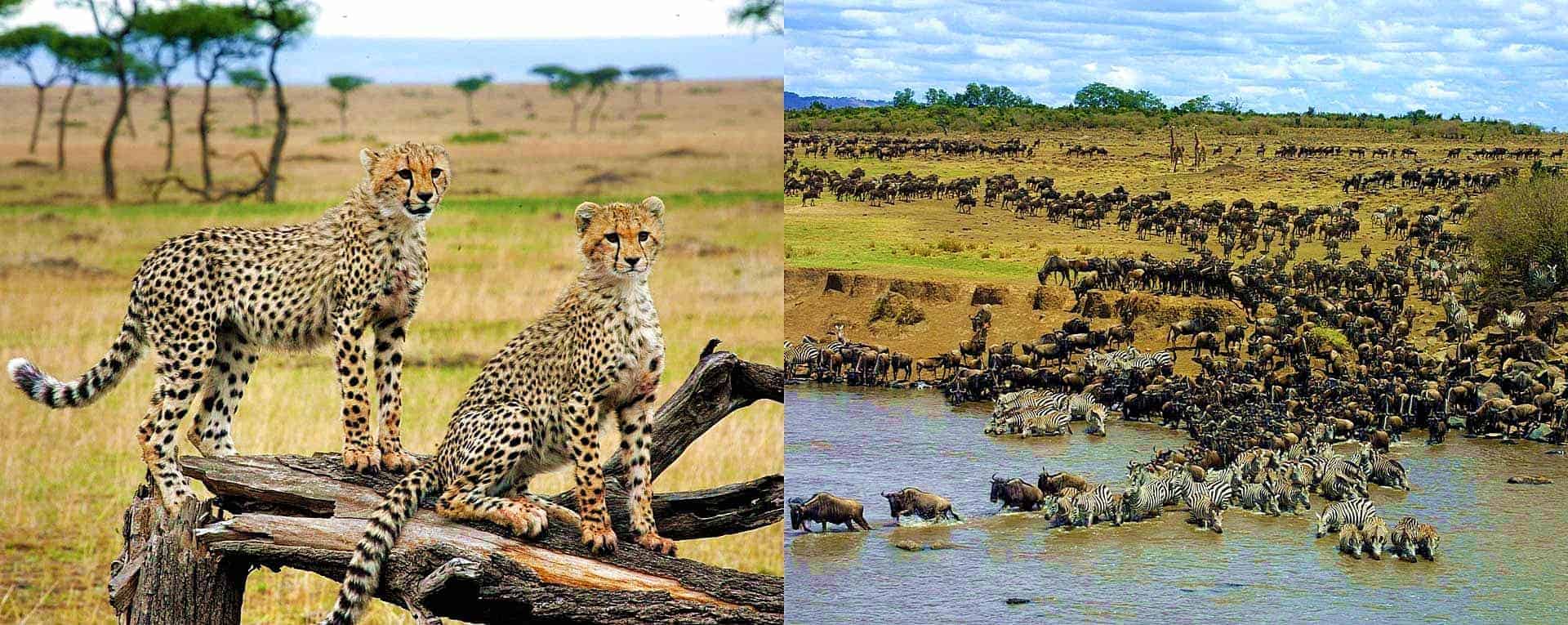
The migration occurs within an area that is known as the “Serengeti ecosystem.” The 40,000-square mile area is defined by Masai Mara National Reserve in the north and, in the south, Ndutu, Ngorongoro Conservation Area and Maswa Game Reserve in Tanzania. The central, eastern and western areas include Grumeti Reserve, Loliondo, the official Serengeti National Park including part of southern expanse of Kusini and other protected areas.
The migration is not a singular, isolated event. Instead, the phrase describes the constant movement of over 1.5 million wildebeests and hundreds of thousands of zebras, as well as elands and gazelles. As with other wildlife, the purpose of the movement is the search for pasture and water. When supplies of these vital resources are depleted in one area, the animals move to another area where water, grasses and other food sources are plentiful.
Owing to the massive size of the herds, the Great Wildebeest Migration arriving from the Serengeti stands out from other migratory movements. How the animals know where to find food and water remains a mystery largely, but researchers have developed some hypotheses about the behavior. Most evidence indicates that weather patterns and the cycle of the rainy and dry seasons have the greatest influence on the wildlife movement. Because rainfall and weather are somewhat unpredictable, there is no way to calculate concretely where the animals will be at any point in the year, nor how long they will remain in one area.
A reliable appraisal of their movement is only possible by studying historical data of previous migrations years. AfricanMecca works closely with strategic camps and lodges in Masai Mara and Serengeti to give its guests a high-quality African plains tour experience, especially those who desire a personal viewing of the varied facets of the migration.
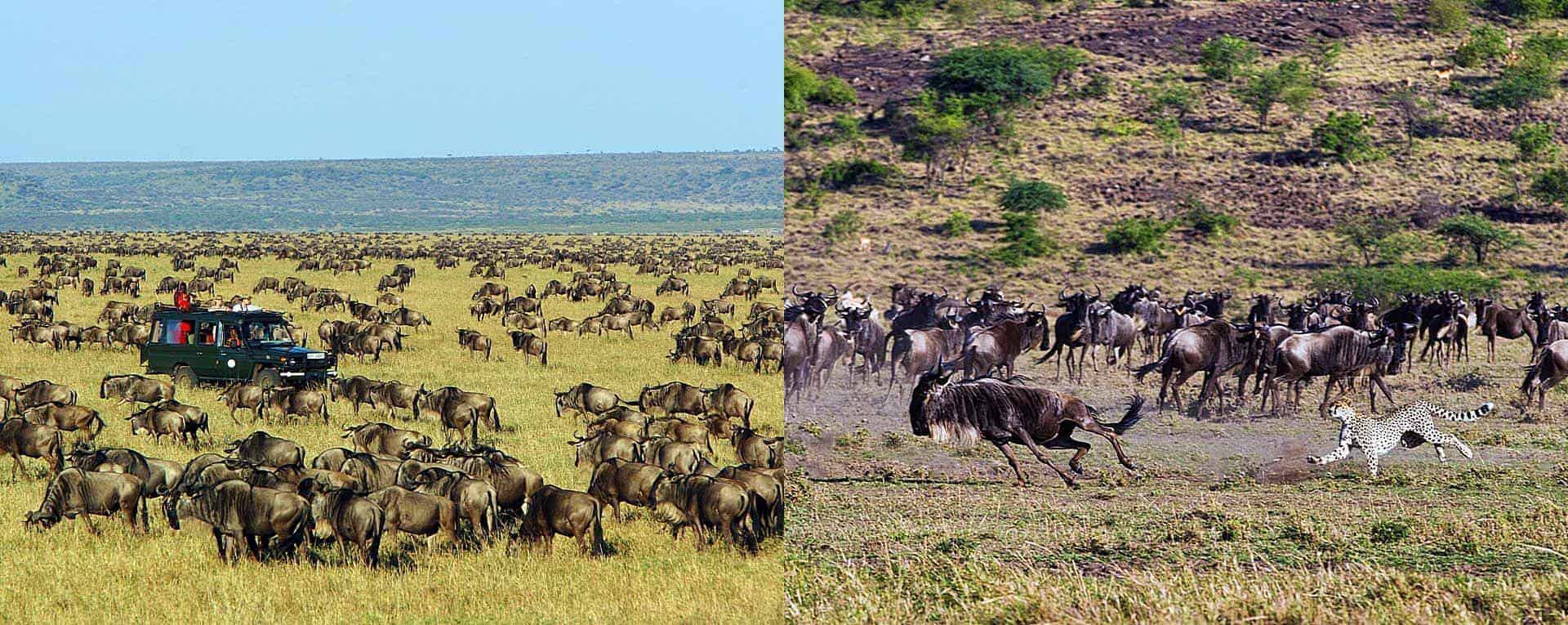
One of the most requested events in the migration is the arrival crossing of the Mara River that occurs around late July to August with parts of September and again on their return south, around the last two weeks of October through early November. These are the best times to track and see the annual wildebeest migration in Masai Mara.
While the sight of masses of animals thundering across the open plains is spectacular, the Mara River crossing will take you through a range of emotions – awe, anticipation, heartache, inspiration, excitement and much more. The crossing is the subject of many documentary films from the BBC to the National Geographic, but even superb filmmaking cannot give you the experience of being on-site.
Throngs of wildebeests gather on ledges above the river, and you can sense their urgency and hesitation. The energy in the air is palpable. As you watch in silence, the wildebeests seem to be gathering their courage, and on some days, they leave the river’s edge and disperse across the savannah to graze. But then the day arrives. The wildebeests once again stand above the river, eyes wide, breath labored – each animal vying for a position that gives the safest and surest path to the water and the opposite bank.
Hours can pass while conversing with your AfricanMecca guide as the wildebeests nervously watch the water for crocodiles. Finally, with no apparent trigger, a few animals rush toward the water, with thousands following close behind along with zebras, elands and gazelles. Your excitement quickly turns to fear. You know that time is of the essence – crocodiles are moving toward the slower and smaller wildebeests.
Snapping jaws are not the only threat, though, as the current of the Mara River acts with greater unrelenting ferocity, often ending more life than the predators. Your heart breaks for the younger calves that are simply too tired and inexperienced to survive the gantlet.
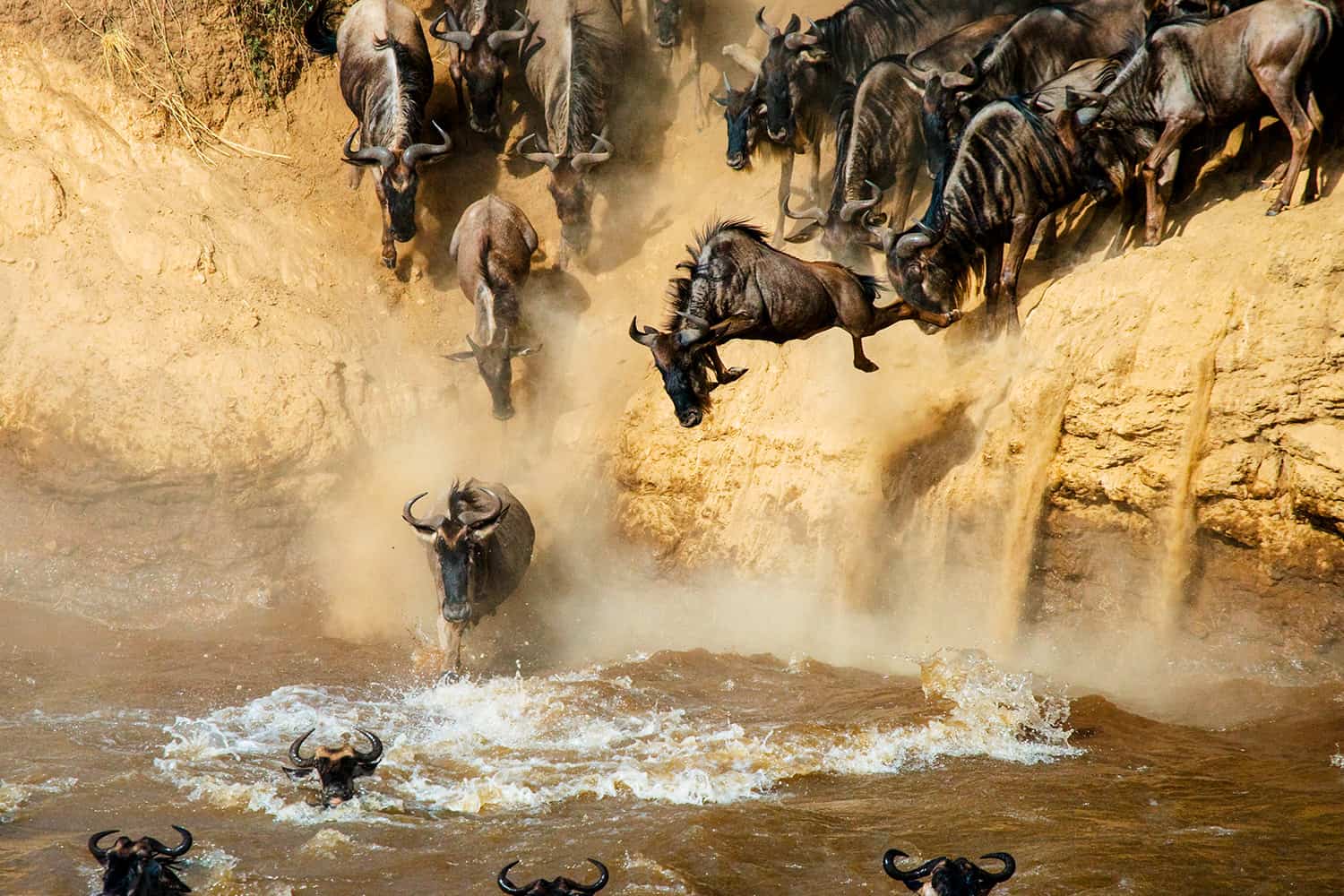
In the chaos, nonetheless, you watch as one-by-one, the strongest and most determined reach the other side, and you feel a great sense of relief and joy. Few are stopped short by prowling and stalking predators like lions, leopards, cheetahs, hyenas waiting around the upper banks of the Mara River for an easy catch on arrival.
For those animals that reach the greater plains of Masai Mara, life is easier but only for a relatively short time (read more on when is the best time to go to Masai Mara). Due to its size (almost 1/15th of the Serengeti National Park in Tanzania), pasture and water supply slowly fade, and the wildebeests and its herbivore partners must continue their ongoing return journey with the crossing of the Mara River again.
The rains return to other areas of the ecosystem, and the gnus, zebras, gazelles and elands continue their transitory journey to the prime grazing grounds in the northern and eastern Serengeti around the middle of October through early November.
Select Our Highly Recommended & Unique Designed Masai Mara Safaris By Camps & Lodges That You Want To Tour Visit & Experience
Write A Review & Rate This Park
Read More +
WHERE TO STAY IN MASAI MARA
The Mara accommodations we recommend are located in five zones: northern, eastern, southern, western and central. Staying at both the conservancy and main reserve offer a discerning experience.
Read More +
GUIDE ON MASAI MARA
Offering superb plains scenery, unmatched safari activities and diverse wildlife, Masai Mara Reserve is considered Kenya's best park and one of Africa's highest wildlife density region for predators.
Read More +
SAFARI & TOUR IN MASAI MARA
Game drive experienced in varied outbacks from riverine woodlands to the great plains is the most widespread tour activity. Other activities are bush walks, village visits, ballooning trip and more.
Read More +
BEST TIME TO VISIT MASAI MARA
The migration season from July to October is considered the best time of the year to visit the Masai Mara. Game viewing is optimal at this time as there is plenty of predator and prey interactions.
Read More +
BALLOON SAFARI IN MASAI MARA
A balloon safari over the Mara is a once-in-a-lifetime experience. As you ascend, beautiful features unfold before your eyes: rolling hills, meandering rivers, lush plains, all teeming with wildlife.
Read More +
MASAI MARA CONSERVANCIES
The Masai Mara conservancies offer the lowest density of guests, distint activities, unique accommodations, as well as incredible flora and fauna experiences in the most pristine wilderness areas.
AFRICANMECCA REVIEWS
What are our Customers saying about us? READ MORE REVIEWS![]()
We had a fantastic trip to the Masai Mara. Thank you for helping to organise it. We will definitely recommend yourselves to our friends who are planning on travelling to Kenya. Thank you again.
Tadhg Jones - AIG Inc - Croydon, United Kingdom
We had a fantastic trip to the Masai Mara. It was well organized by AfricanMecca Safaris and I had no worries. We loved the baby lions and were also able to see the leopard stalking its prey.
Ken and Pam Daut - California, United States
Jambo Raza!!! The safari trip was spectacular! Everything went off without a hitch. We loved the Masai Mara. The migration was awesome. You listened to what I wanted and delivered it perfectly.
Judi & Chaim Platt - Toronto, Canada
My trip to Kenya was beyond fantastic. I loved every second of it and I must thank you and your staff at AfricanMecca Safaris for making my travels to Masai Mara possible and most enjoyable.
Katie Chakey - New Jersey, United States
Raza, Thank you for all your diligent assistance in coordinating our photo safari to the Masai Mara. Thanks again for all of your help in making this a truly dream vacation. I will be recommending you.
Rusty Phenix - (Phenix & Crump Attorneys At Law) - Texas, United States
We had an incredible experience in Masai Mara & on the beach. Everything went very smoothly and the AfricanMecca representatives were fantastic. Thank you for putting together this amazing trip for us.
Dr Cory M. Bryant - US FDA - Washington D.C, United States
I cannot say enough about the quality of AfricanMecca. Their teams in Kenya and Tanzania were top notch. Raza, again thanks to you and your entire organization! We will be repeat customers.
Dan Kobick - Managing Director, PricewaterhouseCoopers - New York, United States
EAST AFRICA SAFARI BOOKING TRIP IDEA FOR MASAI MARA IN SOUTH-WESTERN KENYA
When visiting Masai Mara National Reserve, we recommend combining your wildebeest migration safari with Amboseli, Samburu or Laikipia - Lewa, Nakuru, Elementaita, and Naivasha - Great Rift Valley Lakes. You can also climb the 2nd highest mountain in Africa: Mount Kenya.
You may optionally extend out to other wilderness areas of Meru, Chyulu Hills or Tsavo East - Tsavo West for an offbeat wildlife tour.
You can end your vacation at the Indian Ocean for a beach vacation and Swahili cultural tour on the exotic spice island of Zanzibar, Lamu, or Mombasa.
Best Safari Planning Ideas & Trip Experiences For Kenya
Below are guide references on how to plan each of the below safari experience in Kenya. Alternatively, go to the summary section for a quick overview of each trip planning experience.1. How To Plan Kenya Safari Trips? (Summary)
2. Wildlife Safari Trip Planning Guide For Kenya
3. Private & Tailor-Made Safaris Trip Planning Guide For Kenya
4. Honeymoon Safaris Trip Planning Guide For Kenya
5. Family Safaris Trip Planning Guide For Kenya
6. Luxury Safaris Trip Planning Guide For Kenya
7. Photo Safaris Trip Planning Guide For Kenya
8. Cultural Safaris Trip Planning Guide For Kenya
9. Primate Safaris Trip Planning Guide For Kenya
10. Hike, Trek & Bush Walk Safaris Trip Planning Guide For Kenya
11. Birding Safaris Trip Planning Guide For Kenya
12. Horseback Riding Safaris Trip Planning Guide For Kenya
13. Balloon Safaris Trip Planning Guide For Kenya
14. Wedding Safaris Trip Planning Guide For Kenya
15. Bush & Beach Safaris Trip Planning Guide For Kenya
READ MOREMASAI MARA RESERVE SAFARI & TOUR PLANNING DETAILS
Kickstart Your Safari Planning
ARE YOU PLANNING TO BOOK AN AFRICAN SAFARI TO MASAI MARA IN KENYA?
Do You Need Knowledgeable, Experienced & Specialist Guidance For Your Travels In Masai Mara ? Let Us Help Plan Your Trip Itinerary Correctly
CONTACT AN AFRICA TRAVEL EXPERT ON MASAI MARA NATIONAL RESERVEEXPLORE MORE ON MASAI MARA NATIONAL RESERVE IN KENYA
HAVE YOU VISITED MASAI MARA FOR AN AFRICA SAFARI IN KENYA?
Write A Travel Or Tourist Trip Review To Share Your Experiences
WRITE MASAI MARA REVIEWAMS BLOG
VIEW ALL -- 24 December 2024 by AfricanMecca Safaris, in Blog For AfricanMecca Safaris,Safari Planning Blog Posts - AfricanMecca Safaris
What AfricanMecca Accomplished In 2024
What AfricanMecca Accomplished In 2024 Published By AfricanMecca Safaris | Blog ...READ MORE + - 26 October 2017 by AfricanMecca Safaris, in Blog For AfricanMecca Safaris,Safari Planning Blog Posts - AfricanMecca Safaris
Baggage Guidance, Flight Shuttle Service & Restrictions On Flying Safaris In Africa
Baggage Guidance, Flight Shuttle Service & Restrictions On Flying Safaris In...READ MORE + - 07 June 2017 by AfricanMecca Safaris, in Blog For AfricanMecca Safaris,Latest Kenya Blog Posts From AfricanMecca Safaris,Safari Planning Blog Posts - AfricanMecca Safaris
Masai Mara Horseback Riding Safari In Kenya With AfricanMecca
Masai Mara Horseback Riding Safari In Kenya Published By AfricanMecca Safaris | ...READ MORE +

